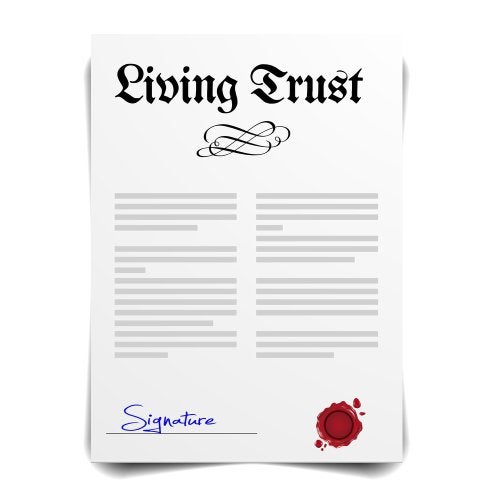-
A Step-by-Step Guide to the Adoption Process in Maryland
Making the decision to adopt a child is a joyous occasion, but the process itself can often be tedious and confusing. If you intend to adopt a child, you can make an appointment with a lawyer in Baltimore who handles adoption cases. Your lawyer can walk you through the stages of the adoption process and provide legal representation if any problems arise.

Requirements
The requirements to adopt a child in Maryland are not unnecessarily strict. However, an adoptive parent must be at least 21 years of age. Adoptive parents may be single or married. If married, then both adoptive parents will be joined to the petition unless the couple is separated or the other parent is not legally competent. It is not necessary for adoptive parents to be affluent; however, they must have the financial means to provide for the child. Adoptive parents may be renters or homeowners. It is required to complete a 27-hour home study course before adopting a child through a public agency.
Consent
Under Maryland family law, the legal guardians of the adoptee must provide consent for the adoption. The legal guardians may be the birth parents or the adoption agency. If the court has terminated parental rights, then only agency consent is required. If the adoption is an independent adoption, the adoptive parents must obtain the consent of all legal guardians. However, the consent of only one parent may be needed if the other parent cannot be located, does not object to a published notice of adoption, and has not been in contact with the department for a certain length of time.
Petition
A lawyer will file a petition for adoption with the court, which will likely include supporting documents. Once the petition is filed, the court will send a notice to all of the involved parties and their attorneys.
Hearing
During the hearing, the judge will decide whether to grant or deny the petition for adoption. If it is an independent adoption, the court might require an investigation prior to granting the petition. If the matter is being facilitated by a private adoption agency, then the agency will need to submit a report prior to the hearing. During the hearing, the judge will consider whether the petitioners are fit to be adoptive parents, whether all necessary paperwork has been completed, and whether being adopted is in the best interests of the adoptee.
-
The Rights of Noncustodial Parents
Noncustodial parents do not have physical custody of a child, but are often granted visitation rights and still maintain certain responsibilities, such as providing child support. When custodial and noncustodial parents disagree, it’s important to understand your rights as a noncustodial parent and how they affect your stance during visitation, custody, or child support mediation in Baltimore.
In this video, you will learn more about the rights of noncustodial parents. If you are meeting resistance from the custodial parent when you attempt to co-parent your child, an attorney specializing in family law can help. Filing a petition in court or seeking mediation will ensure that your rights regarding visitation, phone calls, and access to your child’s records are upheld.
-
Common Questions About Adoption Mediation
Mediation is an invaluable tool for resolving many different types of disputes, including disputes that involve adoption. Adoption mediation can help adoptive parents and birth parents reach mutually agreeable arrangements that allow them to avoid prolonged and contentious court battles. A mediation lawyer in Baltimore can assist your family in all types of circumstances, including independent adoptions, in-state and out-of-state adoptions, contested adoptions, and many others.

What is a post-adoption communication agreement?
One of the most common problems that adoptive parents encounter is post-adoption contact. An adoption could be proceeding smoothly when one or both of the birth parents abruptly demands ongoing contact with the child after the adoption. Adoptive parents should not feel pressured to immediately agree to the demands of the birth parents. Instead, they can turn to adoption mediation to resolve the conflict by producing a mutually agreeable post-adoption communication agreement. This is a written agreement that is signed by both sets of parents. The purpose of the agreement is to serve the best interests of the child. The agreement outlines the specific contact that will be allowed, including the type of contact (e.g. phone calls, visits, or letters) and the frequency of contact. If visits will be allowed, the agreement should specify the location of the visit and how long it will last. Post-adoption communication agreements, much like child visitation orders, can also make arrangements for dealing with special occasions like birthdays and holidays.
What is a contested adoption?
A contested adoption occurs when a birth parent agrees to place the child for adoption and the other birth parent objects to the adoption. Typically, the birth mother initiates adoption proceedings and the birth father later objects to them. Usually, the law grants preference to birth parents when assessing parental rights. However, adoption mediation can still be useful in contested adoption. In some cases, the objecting birth parent may decide to allow the adoption to proceed if he or she will be granted post-adoption contact.
How can adoptive parents prepare for adoption mediation?
The best way to prepare for adoption mediation is to consult the mediation lawyer. Learn what to expect from a typical mediation session, understand the goals and limitations of mediation, and consider adjusting your mindset. To reach a compromise that is in the child’s best interests, it may be necessary to be open-minded toward the needs of the other set of parents.
-
Should You Consider a Trust?
A trust is a financial tool often used during the estate planning process . When a trust is created, a third party, called a trustee, is given control of financial assets meant for an inheritor or beneficiary. During the creation of your trust, you and your estate lawyer serving Baltimore can choose the type of trust you want and determine the terms that must be fulfilled before your beneficiary gains control of the trust himself. In many cases, trusts are passed on to beneficiaries upon the settlor’s death or when the beneficiary reaches a certain age. Creating an irrevocable trust is an excellent way to reduce estate taxes after your death; furthermore, the property and assets that you place into a trust does not go through the probate process. These factors ensure that your chosen beneficiaries will receive the amount you wish them to inherit in full and much more quickly than if legal proceedings are needed to determine inheritance.

-
A Look at the Stepparent Adoption Process
When you form a new family through divorce and remarriage, your child’s remaining biological parent typically retains some measure of legal guardianship over your children. If your new spouse wishes to become a legal guardian for your child, you must complete a stepparent adoption to terminate the rights of your divorced partner so these rights can be transferred to your new spouse. Stepparent adoption may or may not proceed smoothly, depending on the opinions of the child’s biological parents; thus, it is always beneficial to seek the guidance of a family law attorney in Baltimore to guide you through the stepparent adoption process, especially if you anticipate a dispute that may require adoption mediation or a court investigation.

Seeking Parental Consent
To pursue a stepparent adoption in Maryland , the consent of both biological parents must be obtained. Thus, the first step in the stepparent adoption process is contacting the child’s additional biological parent regarding the adoption. If consent is given, the adoption may proceed unhindered. However, if the biological parent does not consent to the adoption, further steps must be taken if you still wish to pursue stepparent adoption.
Handling a Parental Objection
When a biological or legal guardian refuses to relinquish their guardianship rights, they may file an objection to the adoption process. Alternatively, the biological parent may simply fail to provide legal consent. When an objection is filed or consent is not given, the couple wishing to pursue stepparent adoption may seek a court investigation to show that stepparent adoption is in the best interests of the child. If the legal parent is determined to have been absent or neglectful with regard to his parenting responsibilities, his rights may be terminated and the stepparent adoption allowed to proceed. Alternatively, if the contesting parent does not meet the legal definition of a presumed father, his rights may also be terminated to allow for stepparent adoption.
Even if you expect a stepparent adoption to go smoothly, a family law attorney is your best resource for guidance and support during this process to reduce stress for you, your spouse, and your child.
-
A Look at the Legal Process for International Adoptions
Adopting a child is a wonderful way to grow your family. However, international adoptions have restrictions that do not apply to domestic adoptions; working with an attorney familiar with family law in Baltimore can help reduce stress associated with and speed along the international adoption process. The country of origin of the child can influence the ultimate adoption process, but all international adoptions require a few basic determinations. First, you will need to undergo a home study and apply to the U.S. Citizenship and Immigration Services for the ability to adopt. Next, you must file a petition and ensure the child you wish to adopt is eligible to immigrate to the U.S. Once the adoption process is complete, you must obtain an immigrant visa for the child so he can be brought into the country.
Each year, thousands of children are adopted from overseas into American families. Your family law attorney can help you throughout the adoption process with services that include assistance with finding an appropriate adoption service provider and adoption mediation if necessary.


